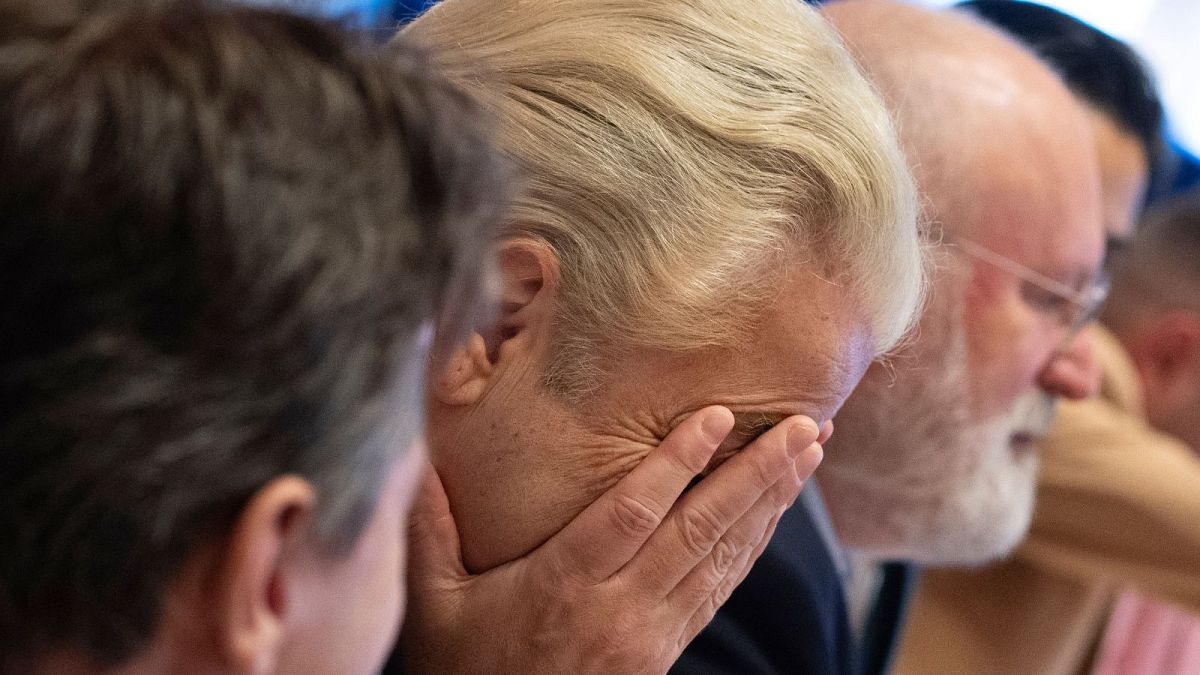Geert Wilders' Party for Freedom (PVV) won 37 seats in the 150-seat lower house on Thursday.
The party of Dutch outgoing Prime Minister Mark Rutte said it would support a centre-right administration in parliament but not join the next government in the wake of the far-right party's election night win earlier this week.
The Party for Freedom (PVV) led by veteran anti-Islam lawmaker Geert Wilders, won 37 seats in the 150-seat lower house on Thursday.
The win means a seismic shift to the right of the political spectrum for the Netherlands.
According to a near-complete count of the votes, Rutte's People’s Party for Freedom and Democracy (VVD) won 24 seats; 10 fewer than in the previous election.
Gom van Strien, a senator for the Party for Freedom, was appointed to investigate possible coalitions. They will debate his findings on Dec. 6.
Dilan Ÿilgöz-Zegerius, the new leader of People’s Party for Freedom and Democracy, said in a statement on X that, after losing 10 seats in the election, the longtime ruling party would “make possible and constructively support a centre-right Cabinet with good policies” but would not join a government.
Wilders called the decision, which was announced before formal coalition talks had begun, “extremely disappointing.”
The election result and appointment of Van Strien paved the way for Wilders to take the lead in forming a new coalition and to potentially succeed Rutte as prime minister.
However, he will likely have to convince potential coalition partners that he would tone down some of his anti-Islam policies.
His party's election platform states that the Netherlands “is not an Islamic country. No Islamic schools, Qurans and mosques.”
One potential coalition partner for Wilders is the recently formed New Social Contract party, or NSC, which won 20 seats. The party's centrist leader, Pieter Omtzigt, said he could not accept “unconstitutional” policies.
Article 1 of the Constitution of the Netherlands outlaws discrimination “on grounds of religion, belief, political opinion, race, gender, disability, sexual orientation or on any other grounds.”
In an election-night victory speech, Wilders pledged not to push any policies that would breach Dutch law or the constitution.
